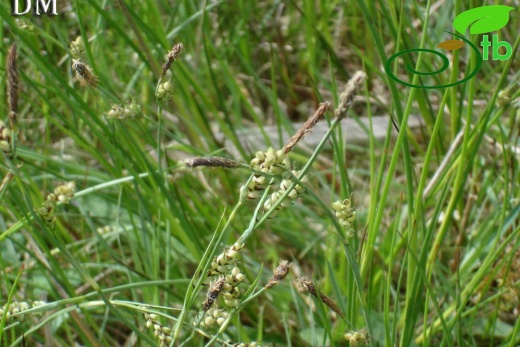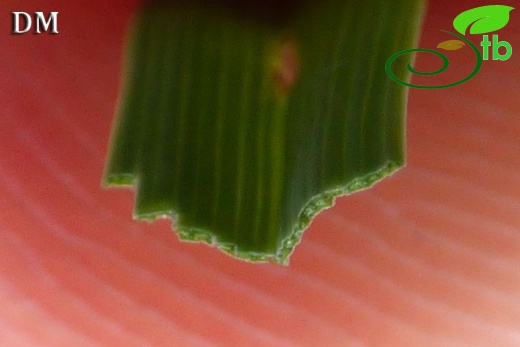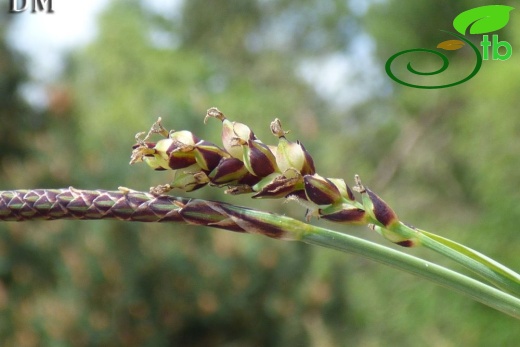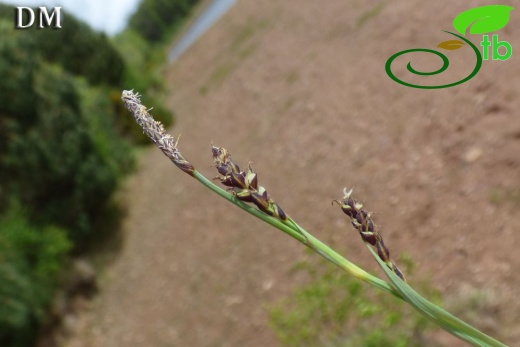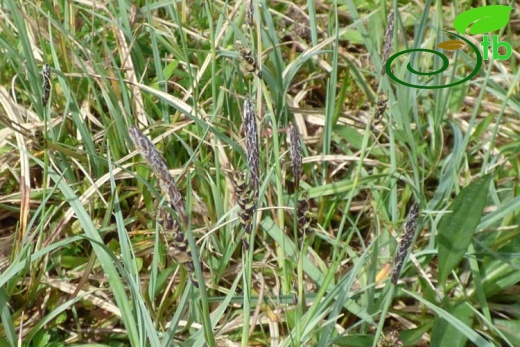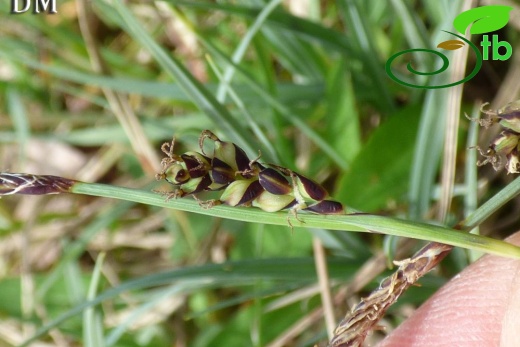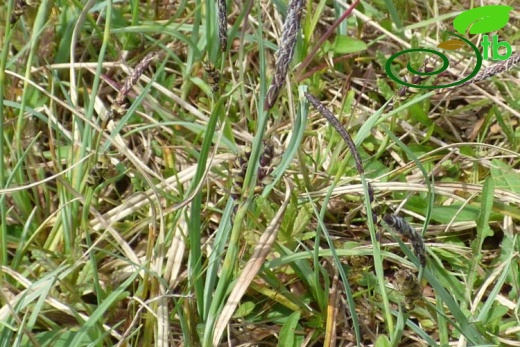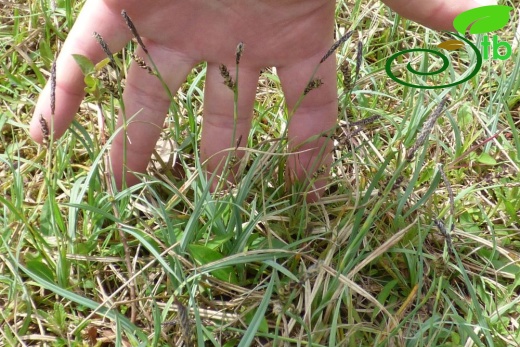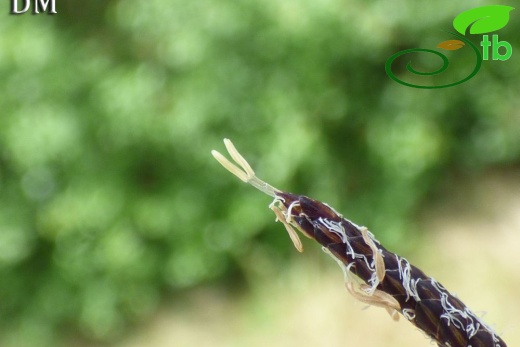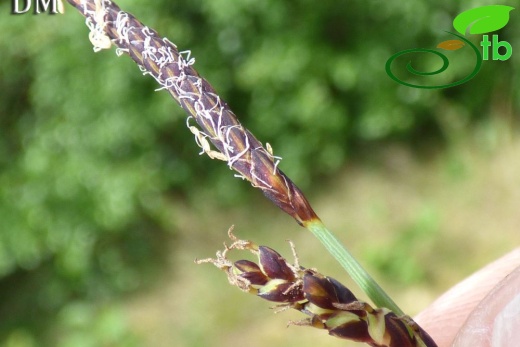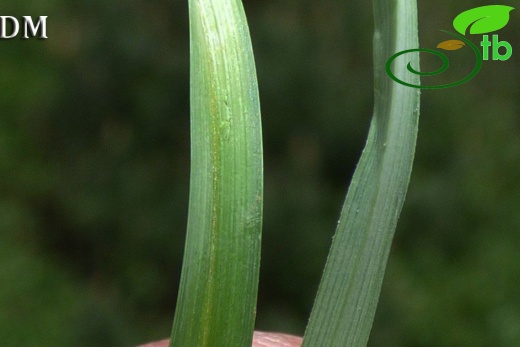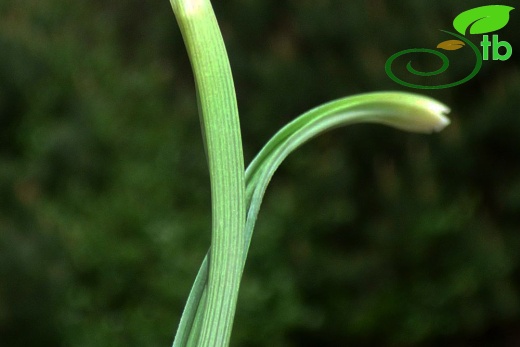Carex panicea
Carex panicea
Darı ayakotu
Rhizomes slender; shoots solitary or in lax tufts. Stems 10-60 cm, bluntly trigonaus to subterete, smooth; basal sheaths thin, pale to whitish-brown, entire. Leaves shorter than stems, 2-5 mm broad, ± flat, glaucous-green. Male spike solitary, pedunculate. Female spikes 1-3, erect, rather few- and laxflowered, 10-30 cm, shortly cylindrical to clavate, lowest pedunculate; lowest bract usually leaf-like and somewhat longer than its spike, with narrow sheath to 1.5 cm. Female glumes ovate, subacute to obtuse, c. ½ x utricles, purplish to dark brown. Utricles pale olive to yellowish-green, sometimes dark brown when ripe, obovoid to broadly obovoid, 3.2-4.7 mm, oblique at top, curving outwards when seen from side, ± patent, obscurely veined, minutely papillose above, abruptly contracted into an often blackish-brown beak 0.3-0.6 mm, ± curving outwards. Moist meadows, marshy ground by streams and lakes, damp heaths, 1300-3000 m.
Most of Europe , C. & S. Russia, Caucasia, N. & W. Iran, N. Iraq, Siberia, C. Asia to Tien-Shan and Pamir-Alai. Euro-Sib. element.


